
























































Fraud Detection at Clock-in - Use AI-powered face recognition with fraud detection to block photo tricks, shared IDs, and proxy punches, so only genuine clock-ins reach your timesheets.
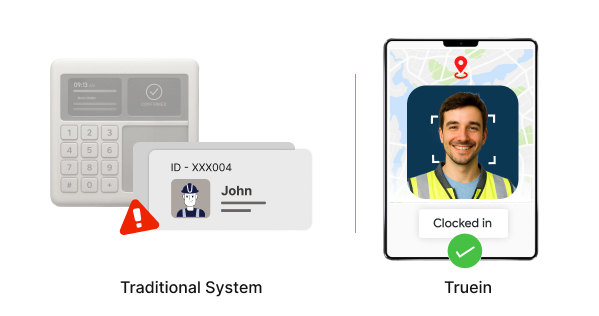
Geofenced Clock-Ins from Approved Sites - Robust Face Recognition and Geofencing ensure employees can clock in only from approved locations, ensuring employees are at the right place and on time.
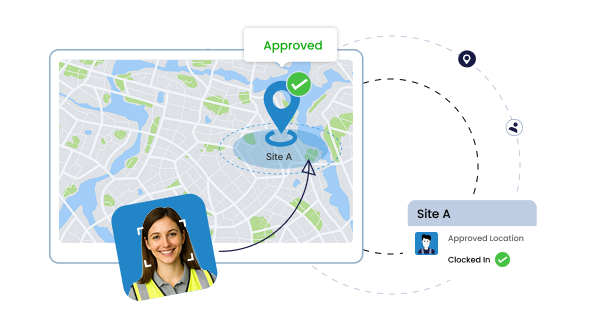
Centralized Workforce Insights with Truein - Gain transparency and control with Truein's centralized solution, offering real-time visibility across multiple sites. Eliminate the complexity of the attendance process for every location.
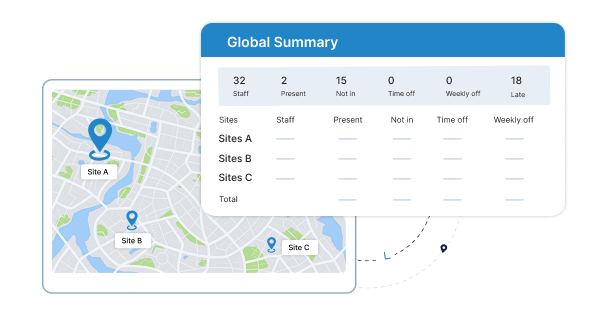
Job-Based & Location-Based Time Tracking - Track time across multiple jobs, sites, shifts, and even staff categories for a clear view of where hours are logged.
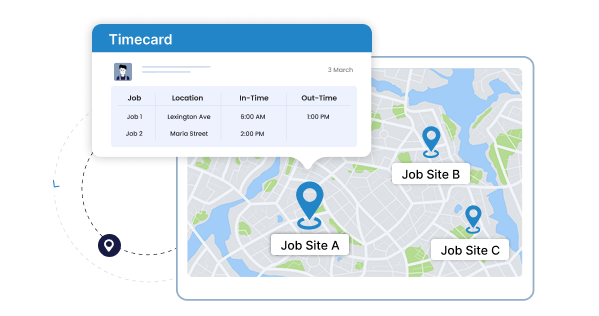
Offline Clock-ins – Let staff clock in on sites with poor or no network. Data is stored on the device and syncs automatically when connectivity is available, so remote locations are never missing from attendance.

Instant Setup And Fast Onboarding- Truein's mobile-based solution lets you set up new sites instantly. Temporary workers can be onboarded within seconds via a kiosk right at the site

Smart Capture Rules - Truein reduces manual edits by auto-flagging late, off-site, duplicate, and missing punches at clock-in, so supervisors review only exceptions and timesheets stay clean and payroll ready.
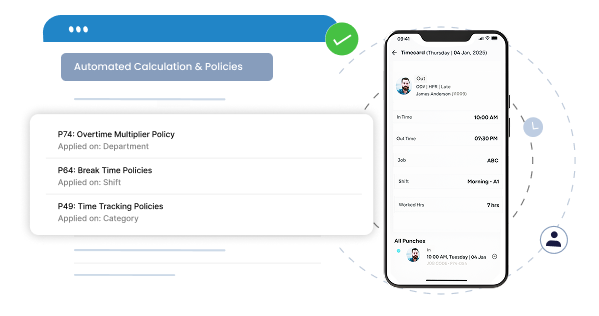
Fraud Detection at Clock-in - Use AI-powered face recognition with fraud detection to block photo tricks, shared IDs, and proxy punches, so only genuine clock-ins reach your timesheets.

Geofenced Clock-Ins from Approved Sites - Robust Face Recognition and Geofencing ensure employees can clock in only from approved locations, ensuring employees are at the right place and on time.

Centralized Workforce Insights with Truein - Gain transparency and control with Truein's centralized solution, offering real-time visibility across multiple sites. Eliminate the complexity of the attendance process for every location.

Job-Based & Location-Based Time Tracking - Track time across multiple jobs, sites, shifts, and even staff categories for a clear view of where hours are logged.

Offline Clock-ins – Let staff clock in on sites with poor or no network. Data is stored on the device and syncs automatically when connectivity is available, so remote locations are never missing from attendance.

Instant Setup And Fast Onboarding- Truein's mobile-based solution lets you set up new sites instantly. Temporary workers can be onboarded within seconds via a kiosk right at the site

Smart Capture Rules - Truein reduces manual edits by auto-flagging late, off-site, duplicate, and missing punches at clock-in, so supervisors review only exceptions and timesheets stay clean and payroll ready.













































































































































We are using Truein at our 80 sites for over 10000 staff. It is an excellent solution. User-friendly and easy to use.


Truein is robust, reliable, and works as promised. I have implemented Truein in my previous and current companies.


Truein is highly accurate, multipurpose, and user-friendly solution. It detects fake clock-ins covers all the modules.


Truein has been very effective at our construction company. I highly recommend it for any small or large enterprise.


We are pleased with Truein for its accuracy and ease of use in tracking the attendance of our staff. Highly recommend it!


Truein is more than a timekeeping tool. It is an enabler of efficiency, transparency, and data-driven decision-making.


We evaluated many time and attendance solutions. Truein outshines them all. It meets every criteria on our list flawlessly.


Our guys in the field like it. And in the back office, we're loving it as well. So, we would definitely recommend Truein.


Truein has strengthened our Time & Attendance accuracy and quality, ensuring compliance and trust among end-users.
Get accurate, fraud-resistant clock-ins across jobs and sites for remote and multi-site teams.







Use verified time to manage shifts, overtime, timesheets, payroll reports and leave in one place

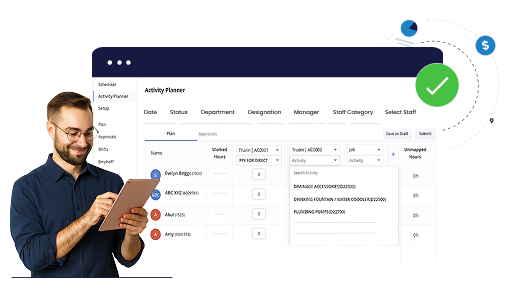
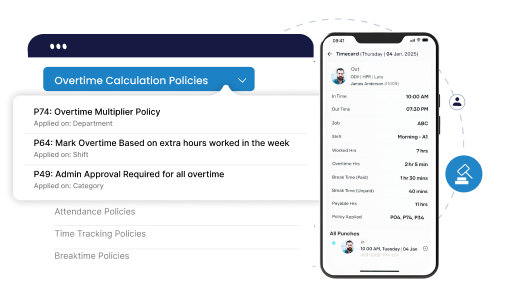
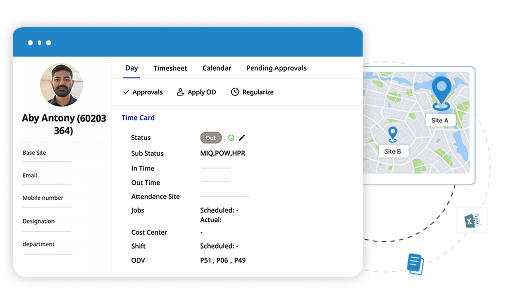
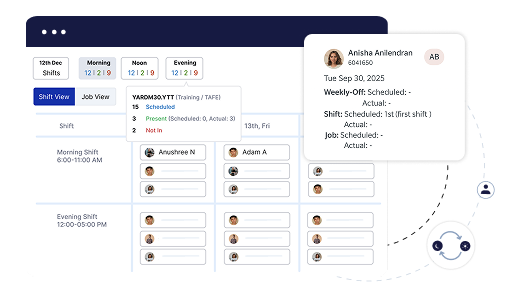
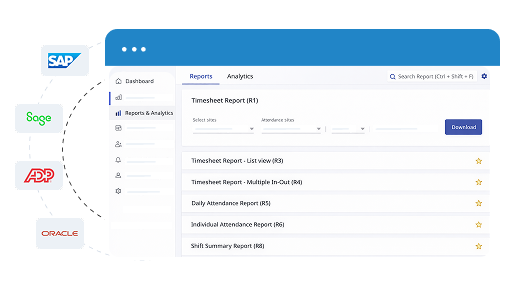
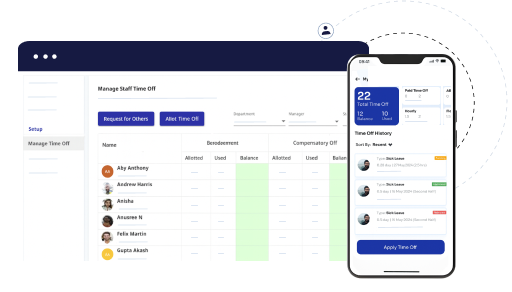


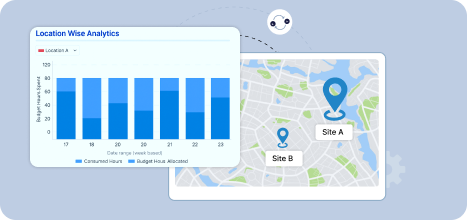








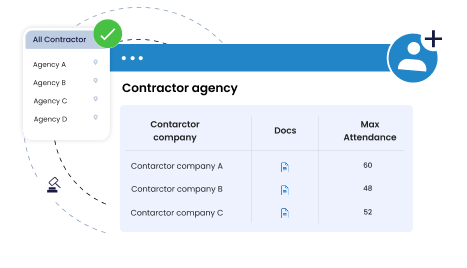


Truein is robust, reliable, and works as promised. I have implemented Truein in my previous and current companies. It's the best and most cost-effective solution.

Piyush Dutt
CPO, Compass Group
1200+
Sites
40,000+
Staff

Truein is highly accurate, multipurpose, and user-friendly. It covers all the modules. It detects fake clock-ins & generates notifications.

Sujit Pawar
DGM, OCS Group
100+
Sites
4000+
Staff

Moving from thumb-based attendance system to a Face recognition based time and attendance solution was made easy by the Truein team.

Srinivas G
Sr. HR Manager, Tata 1mg
200+
Sites
4000+
Staff

We are using Truein Time and Attendance system at our 80 sites for over 10,000 staff. Truein has built-in customization options and gives multiple real-time reports.

Girish Nimbalkar
AGM HR, SJ Contracts
80+
Sites
10,000+
Staff








Truein has helped Jumia a lot, not only in tracking attendance and work hours but also measuring productivity and calculating the payout for external employees.

Alaa Hassan
Head of Ops Excellence, Jumia

Pleased with Truein for its accuracy and ease of use in tracking the attendance of our staff. Truein team is always ready to assist us. Highly recommend it!

Nagham Nasr,
Payroll Officer, Reyada

This face detection time & attendance software is very effective at our construction company. Full marks to Truein and their support team!

Wajahat Khan
Payroll Admin, Al Magamsi General Contracting

Truein is robust, reliable, and works as promised. I have implemented Truein in my previous and current companies. It's the best and most cost-effective solution.

Piyush Dutt
CPO, Compass Group








Truein outshines all other time and attendance solution. Its rich features, payroll ready timesheets and centralized controls put it in a class above all.

Carlos Woodson
Phoenix Transload Services

Truein is a perfect solution for tracking time of our temp workers. It has Excellent support and user-friendly system.

Nicolous Noble
Payroll Administrator, Backerhaus Veit

Truein has strengthened our Time & Attendance accuracy and quality, ensuring compliance and trust among end-users. Excellent product!

Henry Carrillo
Farm Administrator, Unispice

Truein is robust, reliable, and works as promised. I have implemented Truein in my previous and current companies. It's the best and most cost-effective solution.

Piyush Dutt
CPO, Compass Group











Prevent time theft, save HR hours, and optimize workforce utilization with an AI-powered time and attendance solution.
.webp)
Designed for contractors, subcontractors, temps, contingent workers, and other site-based teams.

Advanced facial recognition technology for secure and accurate time tracking across multiple locations.

Deploy workforce management solutions instantly at any location with minimal setup time required.

Unified management dashboard with fail-safe mechanisms to prevent errors and ensure data accuracy.
Comprehensive policies and procedures to ensure compliance and standardization across all sites.

We are using Truein at our 80 sites for over 10000 staff. Truein has built-in customization options and gives multiple real-time reports.



Truein is robust, reliable, and works as promised. I have implemented Truein in my previous and current companies.



Moving from thumb-based attendance system to a Face recognition based time and attendance solution was made easy by the Truein team.



Truein has helped Jumia a lot, not only in tracking attendance and work hours but also measuring productivity and calculating the payout for external employees.



This face detection time & attendance software is very effective at our construction company. Full marks to Truein and their support team!



Pleased with Truein for its accuracy and ease of use in tracking the attendance of our staff. Truein team is always ready to assist us. Highly recommend it!



Truein outshines all other time and attendance solution. Its rich features, payroll ready timesheets and centralized controls put it in a class above all.



Truein is a perfect solution for tracking time of our temp workers. It has Excellent support and user-friendly system.



Truein has strengthened our Time & Attendance accuracy and quality, ensuring compliance and trust among end-users. Excellent product!



Hey there! I'm Aby! Schedule a demo to implement centralized time and attendance solution for multi-site workforce.

Hey there! I'm Aby! Schedule a demo

Schedule a demo with a Truein Solution Expert
 58+ Global companies booked a Truein demo last week
58+ Global companies booked a Truein demo last week
